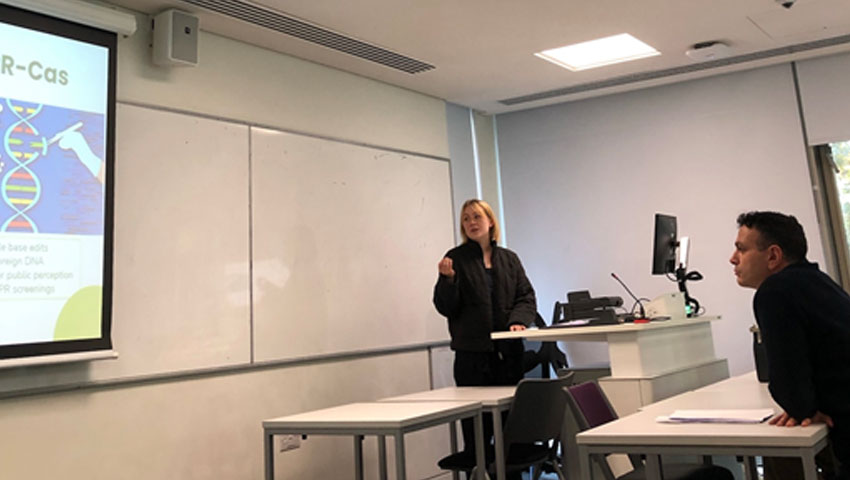
The transferrable skills I gained from my time in the Gene Editors of the Future program cannot be overstated. Within this program, I was given the opportunity to present ideas and communicate confidently with diverse audiences, from people without a scientific background to professors in the fields. As scientists, it is our duty to educate and inform, so honing these science communication abilities will be invaluable to me whether I choose to work in industry or research. Moreover, in this age of information, bioinformatics is an inevitable part of science. This fact daunted me before I joined the program, as bioinformatics was my weak point. However, after having the chance to explore genome databases and design primers and guideRNAs under the patient and supportive eye of Dr Surendranath, I now have an appreciation for the field. I was also inspired to pursue my own independent research – something actively encouraged throughout the program.
What I cherish most about my time in this program is its inclusive and welcoming nature. It is rare for a program such as this to be made free and available to all. Additionally, the community that hard work and a shared passion can foster is wonderful. I have made many new friends and have had endless opportunities to network.
UoW Learning and Teaching Symposium
I participated in a round-table panel where I shared my Gene Editors experience, sharing strategies for how the program keeps its students engaged and remains accessible to those with busy schedules. It was an excellent opportunity to network with the members of similar programs, such as the UoW DEN and the Cavendish Living Lab and discuss how these extracurricular programs can be improved.
QMUL Research Forum
A significant focus of Gene Editors is to adhere to the United Nations Sustainable Development Goals. At a research forum collaboration with QMUL, I presented the current research on how gene editing can be used to make agriculture a more sustainable and carbon-neutral practice.


